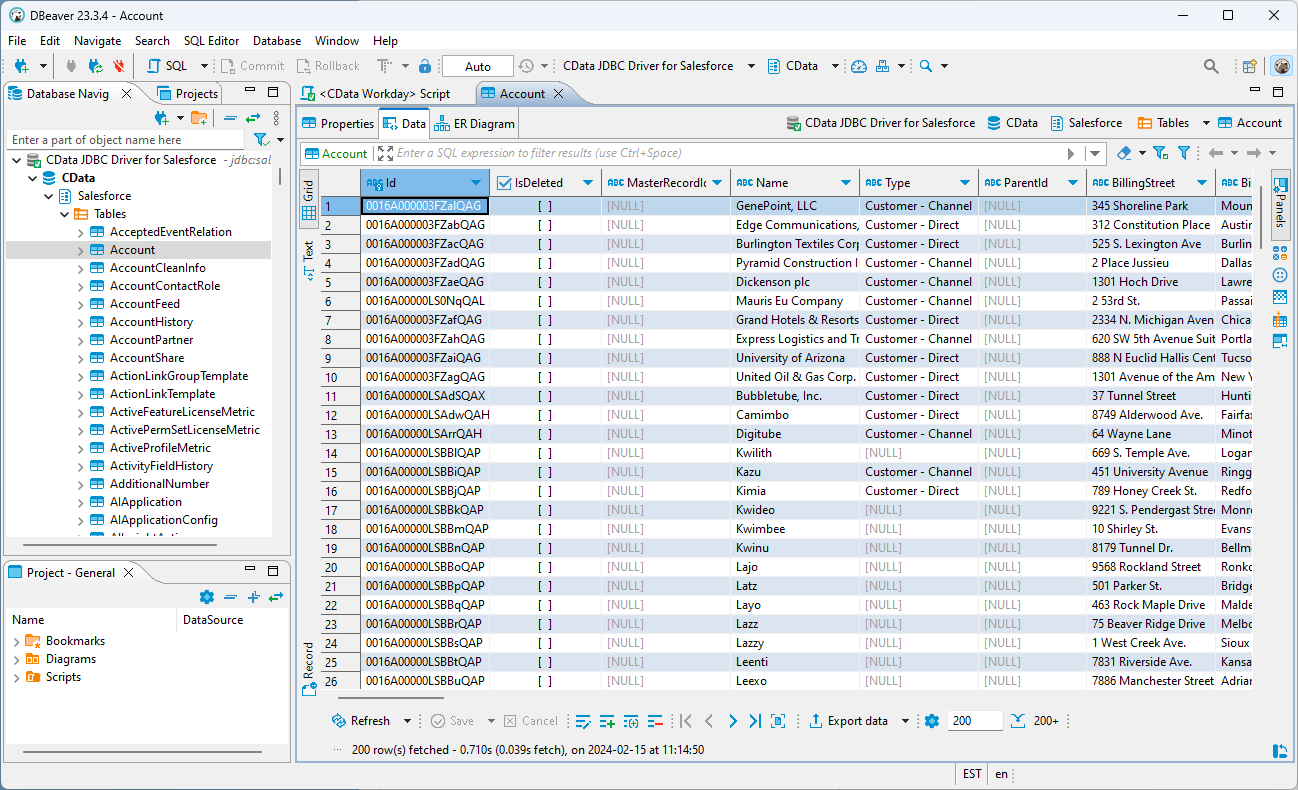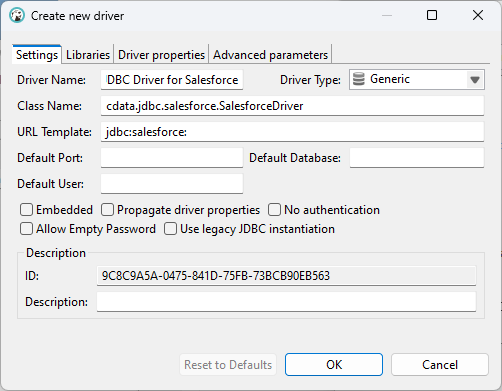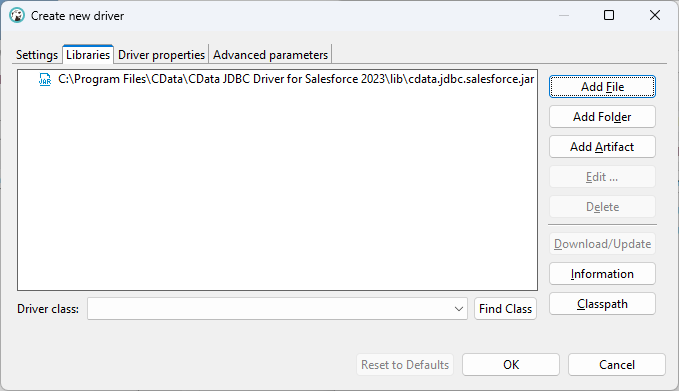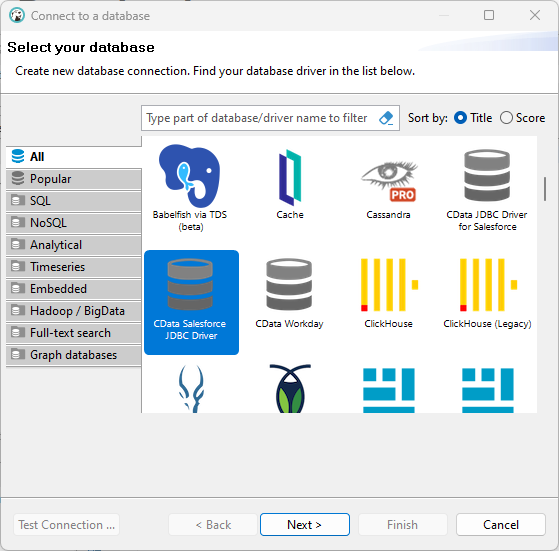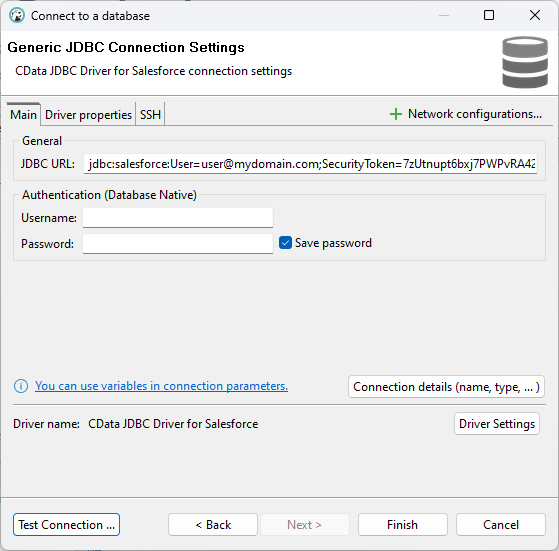Discover how a bimodal integration strategy can address the major data management challenges facing your organization today.
Get the Report →How to Connect DBeaver to BigQuery via a JDBC Driver
Manage BigQuery data with visual tools in DBeaver like the query browser.
The CData JDBC Driver for Google BigQuery implements JDBC standards that enable third-party tools to interoperate, from wizards in IDEs to business intelligence tools. This article shows how to connect to BigQuery data with wizards in DBeaver and browse data in the DBeaver GUI.
Create a JDBC Data Source for BigQuery Data
Follow the steps below to load the driver JAR in DBeaver.
- Open the DBeaver application and, in the "Database" menu, select the "Driver Manager" option. Click "New" to open the "Create new driver" form.
- In the Settings tab:
- Set Driver Name to a user-friendly name for the driver (e.g. CData JDBC Driver for Google BigQuery).
- Set Class Name to the class name for the JDBC driver: cdata.jdbc.googlebigquery.GoogleBigQueryDriver.
- Set URL Template to jdbc:googlebigquery:.
![Configure the new driver settings (Salesforce is shown).]()
- In the Libraries tab, click "Add File," navigate to the "lib" folder in the installation directory (C:\Program Files\CData[product_name] XXXX\) and select the JAR file (cdata.jdbc.GoogleBigQuery.jar).
![Loading the JDBC JAR file (Salesforce is shown).]()
Create a Connection to BigQuery Data
Follow the steps below to add credentials and other required connection properties.
- In the "Database" menu, click "New Database Connection."
- In the "Connect to a database" wizard that results, select the driver you just created (e.g. CData JDBC Driver for Google BigQuery) and click "Next >."
![Selecting the driver (Salesforce is shown).]()
- On the Main tab of the configuration wizard, set the JDBC URL, using the required connection properties:
Google uses the OAuth authentication standard. To access Google APIs on behalf of individual users, you can use the embedded credentials or you can register your own OAuth app.
OAuth also enables you to use a service account to connect on behalf of users in a Google Apps domain. To authenticate with a service account, you will need to register an application to obtain the OAuth JWT values.
In addition to the OAuth values, you will need to specify the DatasetId and ProjectId. See the "Getting Started" chapter of the help documentation for a guide to using OAuth.
Built-in Connection String Designer
For assistance in constructing the JDBC URL, use the connection string designer built into the BigQuery JDBC Driver. Either double-click the JAR file or execute the jar file from the command-line.
java -jar cdata.jdbc.googlebigquery.jarFill in the connection properties and copy the connection string to the clipboard.
![Using the built-in connection string designer to generate a JDBC URL (Salesforce is shown.)]()
Below is a typical connection string:
jdbc:googlebigquery:DataSetId=MyDataSetId;ProjectId=MyProjectId;InitiateOAuth=GETANDREFRESH![Configuring the JDBC URL (Salesforce is shown).]()
- Click "Test Connection ..." to ensure you have configured the connection properly.
![A successfully configured connection (Salesforce is shown).]()
- Click "Finish."
Query BigQuery Data
You can now query information from the tables exposed by the connection: Right-click a Table and then click View Table. The data is available on the Data tab.
